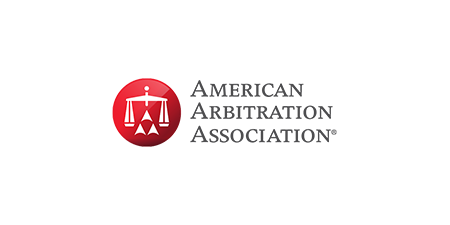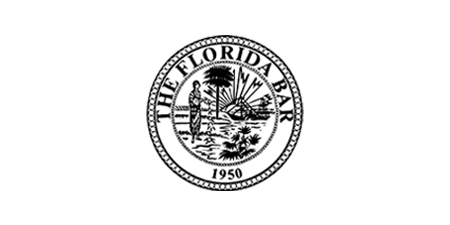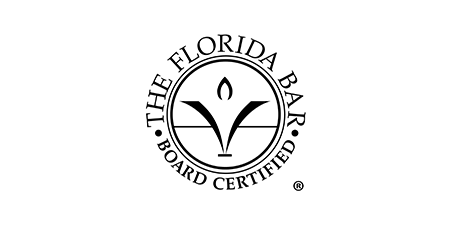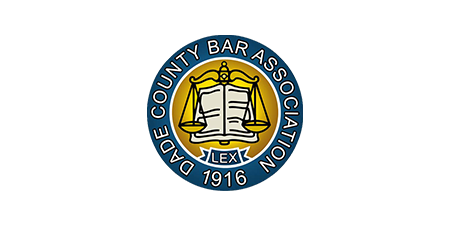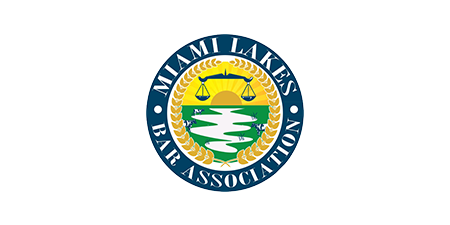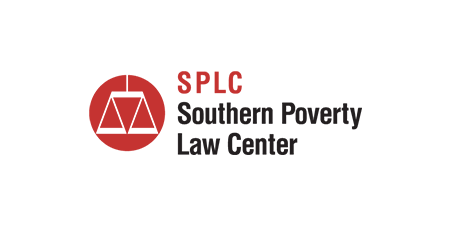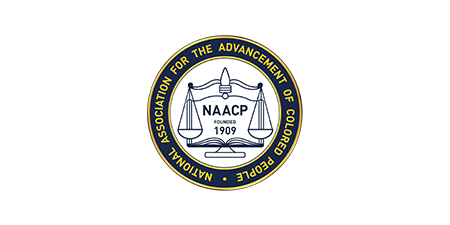Glossary
Real estate transactions can be confusing. Learn the most commonly used terms relating to real estate, title, escrow, closing and more.
A
Abstract
A brief synopsis of legal documents affecting a specific piece of property, which is compiled in chronological order and includes all the instruments in the chain of title.
Acceleration Clause
Condition in a mortgage that may require the balance of the loan to become due immediately, if regular mortgage payments are not made or for breach of other conditions of the mortgage.
Acknowledgment
A formal declaration made before a duly authorized officer usually a Notary Public by a person who has signed a document. The officer witnesses the signature as being the voluntary act and genuine signature of the person signing it, who is personally known to the officer or whose identity is proved by adequate identification. The officer will be liable for damages caused by his negligent failure to adequately identify the person signing, as where forgery occurs. A document will not be accepted for recording unless it is acknowledged.
Adjustable Rate Mortgage
Also called an ARM or adjustable, is a mortgage loans under which the interest rate is periodically adjusted, in accordance with some market indicator, to more closely coincide with the current rates. The extent and number of these adjustments are agreed to at the inception of the loan. This type of mortgage typically starts off with a lower “teaser” interest rate that stays fixed for a specified time, then adjusts periodically depending on changes in the market interest rate.
Administrator
A person appointed by the court to settle the estate of a person who has died intestate—that is, leaving no will.
Amortization
Equal periodic loan payments calculated to pay off the debt at the end of a fixed period, including accrued interest on the outstanding balance.
Appraisal
A report made by a certified or licensed expert that states an opinion of the fair market value and quality of the property following a personal visit and examination of the property.
Appraiser
A certified or licensed expert who states his or her opinion of the fair market value and quality of the property following a physical review of the property and the market condition.
Appreciation
An increase over time in the market value of a home, further adding to the homeowner’s equity.
Assessment
(1) The valuation of real estate for purposes of taxes or special improvement charges. (2) The amount of taxes or special improvement charges. Special improvement charges are usually for the costs of streets, sidewalks, sewers, etc.
Assignment
A written transfer of one’s interest in something, such as a promissory note or a deed of trust.
Assumable Mortgage
A type of mortgage that is set up so that the buyer can take over the seller’s payments.
B
Bill of Sale
An instrument conveying title to personal property.
C
Closing (Settlement)
The formality of finalizing a transaction, either the transferring or financing of a property. The final step of a property sale transaction, in which the legal (“closing”) documents (e.g., deed, note, mortgage, and affidavits) are executed and funds disbursed in accordance with the terms of the contract or loan commitment.
Closing Agent (Settlement Agent)
The agent who oversees and conducts the many steps involved in the real estate transaction during the closing, or “settlement,” process, including controlling the down payment and all documents related to the sale.
Closing Statement or Hud-1
A settlement Statement prescribed for use in federally related mortgage transactions. It discloses all charges, disbursements, costs to the buyer and seller in a real estate transaction.
Closing Disclosure
Effective August 1, 2015, the Closing Disclosure replaces the Housing and Urban Development (HUD-1) settlement statement and the final TIL statement that must be provided to the consumer at least three business days prior to loan closing.
Clouds on Title
A lien or encumbrance that, if valid, would adversely affect the title to a parcel of real property.
Commitment Letter
A written agreement in which the lender agrees to lend money if the borrower meets certain conditions.
Comparative Market Analysis (CMA)
A written CMA compares a home to comparable homes in the neighborhood that are either presently on the market or have sold in the last six months.
Contingencies
Conditions (or escape clauses) that buyers put in their purchase offer and sellers add in the counter-offer so that, if the contingency isn’t fulfilled, the party that made it is free to walk away from the deal.
Contract
A legally binding document in which the buyer agrees to purchase specific property and the seller agrees to sell under stated conditions. Also called a contract for purchase and sale, purchase and sale agreement, binder, or earnest money contract.
Consumer Financial Protection Bureau
(CFPB) is an independent agency of the United States government responsible for consumer protection in the financial sector.
Conventional Loan
Generally indicates a mortgage loan that is neither insured by the FHA nor guaranteed by the VA.
Conveyance
The transfer of title of land from one to another; also, the instrument that accomplishes this transfer (see Deed).
Curb Appeal
The attractiveness of a home and its property to prospective buyers viewing it from the street as compared with other homes on that same street or within that same neighborhood.
D
Deed
A written instrument signed and witnessed by two persons by which one person conveys title of land to another. While more commonly used to convey title to real property, it may also by used to convey title to personal property. (See also Warranty Deed)
Default
The failure of a buyer to pay the monthly mortgage payment which includes the loan principal, interest, and possibly additional charges for taxes and insurance.
Discount Broker
A transactional agent who works at a discount by providing only certain services.
Dodd Frank Act
The full name of the bill is the Dodd-Frank Wall Street Reform and Consumer Protection Act, but it is better known and most often referred to as Dodd-Frank. Dodd-Frank is also geared toward protecting consumers with rules like keeping borrowers from abusive lending and mortgage practices by banks. It became the law of the land in 2010.
E
Equity
The market value of a home minus what the homeowner owes on it. Homeowners sometimes borrow against their equity, taking out a home equity loan (also called a second mortgage), with tax-deductible interest, to pay for whatever they choose.
Escrow
A special non-interest bearing account used by attorneys and Realtors to hold down payments, earnest money, and funs from closing for a specified clearing period of custom allows.
Estoppel Letter
A document executed by a party to a debt acknowledging the current loan balance and terms. Having thus acknowledged the balance and terms, the party making the document is prevented from later claiming that the information was not accurate. It is used to confirm the loan balance in connection with the sale of a mortgage by the mortgagee or in connection with the sale of the underlying real property by the mortgagor.
F
Fair Market Value
The value of a home based on a comparison of that home with comparable homes in the same neighborhood that are either presently on the market or have sold in the last six months.
FHA Loan
Federal Housing Administration. A federal agency within the U.S. Department of Housing and Urban Development (HUD). Using loan insurance programs to insure mortgages for lenders, the FHA stimulates the availability of housing for low- and moderate –income families.
Fixed-Rate Mortgage
A type of mortgage in which the interest rate remains the same, or “fixed,” throughout the term of the loan. Lenders typically charge a higher interest rate for these mortgages. The most common fixed-rate mortgages are 15-year and 30-year.
Foreclosure
When the lender gets a judgment ordering a public sale of the property to pay off the loan because the borrower has defaulted on the mortgage payments.
G
General Lien
A right of a creditor to have all of the debtor’s property sold to satisfy a debt. Unlike a specific lien against certain property, a general lien is directed against the individual debtor and attaches to all of his property.
Government Land
This term, as distinguished from Crown Lands and Konohiki Lands, refers to those lands set apart to the Government by King Kamehameha III on March 8,1848, which action of the King was confirmed by the Legislature on June 7,1848.
Ground Lease
A lease of land alone, sometimes secured by improvements placed upon the land. The ground lease is a means used to separate the ownership of land from the ownership of the buildings and improvements constructed on the land. In Hawaii, it is a lease creating a tenancy for years, typically for a term of 55 years.
Guardian
One who is given the lawful custody and care of another (called a ward). The ward might be a minor, an insane person or a spendthrift. The guardian may upon court approval sell the ward’s property, if it is in the best interest of the ward. The grantee would receive valid title under a guardian’s deed. A “Guardian Ad Litem” is one appointed by a court to bring or defend a legal action on behalf of his ward.
H
Hidden Defect
Any claim on a property that does not appear in the public records, for example, an unknown heir or an unrecorded municipal utility lien.
Homeowners Insurance
Required for all homeowners, it protects against accidents and theft that might occur on their property.
Home Inspector
The home inspector is an objective third party who essentially gives the house a complete physical. He or she examines the property with a fine-toothed comb, reporting on the condition of the structure and systems of the house.
Homestead Tax Exemption
A tax credit for Florida residents on their principal residence. The exemption basically takes $25,000 off the tax-assessed value of the property, giving the homeowner a tax reduction of about $500.
I
Inspection
Examination of property to see that it meets the standards of the contract, the lender, and the buyer.
Interest
A charge for a loan is usually a percentage of the amount loaned. The IRS lets homeowners deduct mortgage interest and real property taxes, within limits, on annual income tax returns.
J
Joint Tenancy
A form of property ownership by two or more persons in which the joint tenants have one and the same interest, arising by one of the same conveyance, commencing at one and the same time and held by one and the same possession (the concept of the “four unities”). A distinctive feature of the joint tenancy is the right of survivorship by which the surviving joint tenant(s) succeeds to the interest of the deceased joint tenant. No probate proceedings are necessary.
Joint Venture
A partnership formed by two or more persons having as members one or more general partners and one or more limited partners. The limited partners are not bound by the general obligations of the partnership since they are limited in their liability up to the amount of their investment (similar to shareholders in a corporation). The management and operation of the partnership business is under the exclusive control of the general partners;in fact, the limited partners can lose the limited liability by participating to any degree in the management of the partnership.
Judgment
The formal decision of a court upon the respective rights and claims of the parties to an action or suit. In Hawaii, a judgment includes a decree and any order from which an appeal lies. After a judgment has been entered and re-corded in the Bureau of Conveyances it becomes a general lien on the property of the defendant.
Judgment Lein
A lien binding on all the real estate of a judgment debtor and giving the holder of the judgment a right to levy (to seize) the land for satisfaction of his judgment. Any Circuit Court or District Court judgment shall be alien upon the real property when a certified copy of the judgment is recorded in the Bureau of Conveyances. A judgment lien is effective for 10 years.
K
Keogh Funds
A tax deferred retirement savings plan for small business owners or self-employed individuals who have earned income from their trade or business. Contributions to the Keogh plan are tax deductible.
L
Land
The surface of the earth extending down to the center and upward to the sky, including all natural things thereon such as trees, crops or water; plus the minerals below the surface and the air rights above.
Land Commission
The common name of the Board of Commissioners To Quiet Land Titles, established by the Act of December 10, 1845. It was composed of 5 commissioners whose duties were to investigate and decide upon all the claims of private individuals to any land acquired prior to the passage of the act. If a majority of the 5 commissioners approved a claim, a Land Commission Award was issued. Thereafter, the awardee paid a commutation tax and was issued a Patent on the Award. The Land Commission was dissolved as of March 31, 1855.
Land Commission Award
This was the award of the Land Commission, which confirmed the claim of an individual to a parcel of land. For a claim to be confirmed, it required the approval of a majority of the members of the board. Land Commission Awards are the foundation of some private land titles in Hawaii.
Land Court Application/Consolidation Index
An index by Application/Consolidation number showing:
- Applicant’s name
- Original Certificate of Title number
- Application number
- Transfer Certificate of Title (TCT) number on which Land Court Order (LCO) has been endorsed
- Map numbers
- Description of what transpired on each map
- Land Court approval date
- Land Court Order number that created such map
Land Court Consolidation
An owner of two or more contiguous or adjacent lots covered by two or more separate Land Court Applications may combine them by filing a petition which is called a Land Court Consolidation. All Land Court Consolidations are numbered consecutively.
Land Court Document
Documents affecting the land after a decree is issued. Such documents must be registered in the Land Court System in order to affect any change in ownership or to encumber any registered interest.
Land Court Order
A notice of change in title or description of registered land. Any change in land description, i.e. subdivision, accretion, consolidation, restriction of access, designation of easement or setback line, must be accompanied by a map showing the changes. These maps are numbered consecutively within any given application.
Land Patent
A Patent that was issued upon payment of commutation to the government by the awardee of a Land Commission Award. Such Land Patent on the Award conveyed no title, but merely indicated that the government’s interest in the land had been settled. This document was issued after the overthrow of the monarchy.
Land Patent Grant
This document was issued by the government of the Hawaiian Islands for those government lands that had been sold after the overthrow of the monarchy.
Late Charge
A penalty imposed by the lender when a borrower fails to make a scheduled payment on time.
Latent Defect
A hidden defect, one that is not readily discoverable by mere observation. Sellers and their real estate agents must disclose known material latent defects concerning the property to prospective purchasers.
Lease
A lease is both a contract between lessor (landlord) and lessee (tenant)and a conveyance or demise of the premises by the lessor to the lessee. A lease is a contract in that it embodies the agreement between the parties. The main elements of a lease contract are:
- The names of the lessor and lessee.
- An agreement to let and an agreement to take the premises.
- A statement of the permitted use of the property.
- Description of the premises.
- The beginning date and duration of the term.
- The payment of rent. The lease is also a conveyance in that the agreement involves the creation of an estate in land, that is, the right to possession and use for a period of time.
Legal Description
A description that is complete enough that an independent surveyor could locate and identify a specific piece of real property. A legal description is required on all deeds, leases, assignment of leases and mortgages and issued in most agreements of sale. Street addresses, tax bill descriptions(TMK) and general descriptions are inadequate to use in recorded title documents since many years hence the streets may not exist and obvious difficulties would arise for someone searching the chain of title or trying to locate the property. Under Hawaii’s condominium law, however, a post office address description is sufficient in a deed or master lease since the legal description has been included in the recorded declaration.
Lien
A legal claim on the property that acts as a security for the payment of a debt. If the debt is not repaid as promised, the lender or the lienholder can foreclose its claim on the property and force a public sale to pay the debt.
M
Marketable Title
Property is said to have marketable title when the title, or rights to a property, has no problems or only minor problems that any well-informed and prudent buyer would accept.
Material Defect
Defects, including any property damage, malfunctions of major systems, and environmental hazards affecting the condition of a home, which should be readily disclosed to a buyer.
Mortgage
The pledging of property to a creditor as security for payment of debt. Also, a document that places a lien on property. The lender holds the lien as security for the money borrowed.
Mortgage Note
A promissory note that is secured by a mortgage.
Mortgage Policy
A title insurance policy issued to the lender. It protects the lender for the amount of the mortgage loan.
Mortgagee
The holder of a mortgage; the lender.
Mortgagor
The debtor; the person who executes a mortgage; the borrower.
Multiple Listing Service (MLS)
A computer-based resource used by real estate agents that lists and contains descriptions of houses that are for sale in a particular area.
N
Negative Amortization
An increase in the balance of a loan caused by adding unpaid interest to the loan balance; this occurs when the payment does not cover the interest due.
Net Monthly Income
Your take home pay after taxes. It is the amount of money that you actually receive in your paycheck.
Net Worth
The value of a company or individual’s assets, including cash, less total liabilities.
Non Liquid Asset
An asset that cannot easily be converted into cash.
Notary Public
A public officer whose function is to administer oaths; to attest and certify documents by his signature and official seal, giving them credit and authenticity; to take acknowledgments of deeds and other conveyances.
Note
A written promise to pay a specified amount under the agreed upon conditions.
Note Rate
The interest rate stated on a mortgage note, or other loan agreement.
O
Offer
A formal bid from the home buyer to the home seller to purchase a home.
Open House
When the seller’s real estate agent opens the seller’s house to the public.
Original Principal Balance
The total amount of principal owed on a mortgage before any payments are made.
Origination Fee
A fee paid to a lender or broker to cover the administrative costs of processing a loan application. The origination fee typically is stated in the form of points. One point is one percent of the mortgage amount.
Option
An agreement to keep open, over a set period, an offer to sell or purchase property. The option must be supported by its own actual consideration, separate and independent from the purchase price of the property. A mere recital of consideration alone is not sufficient except in a lease option situation, in which the provisions of the lease are themselves sufficient consideration to support the option. The option must contain all the essential terms of the underlying contract of sale so that a complete binding contract is created immediately upon the optionee’s election to exercise his right to purchase or sell. If the optionee elects not to exercise the option, the option or keeps the option money and neither party is obligated to perform. Since “time is of the essence” in an option agreement, the option automatically expires if not exercised prior to the termination date. An option is not an interest in land and therefore not capable of comprising the security for a mortgage.
Owner Financing
A transaction in which the property seller provides all or part of the financing for the buyer’s purchase of the property.
Owner Occupied Property
A property that serves as the borrower’s primary residence.
Owner’s Certificate of Title
When property is registered in the Land Court system, the original Certificate of Title is recorded in the Bureau of Conveyances by the Assistant Registrar. The property cannot be transferred without a notation of this transfer being made on the Certificate, also called the “Transfer Certificate of Title” or TCT.
Owner’s Title Insurance Policy
Covers the buyer both legally and financially and insures you will not be liable for any title flaw that arose from the property’s history before you purchased it. The Owner’s Title Insurance Policy will stay in effect as long as you or your heirs own the property.
P
Points
Up-front interest to compensate the lender for processing a mortgage. Also known as “loan origination fees.” Each point equals 1% of the loan. Points are also referred to as “discount points” because usually the more points paid, the lower the interest rate.
Principal
The amount of money borrowed in a loan on which interest is charged.
Pre-Approval
Initiating the loan approval process before finding a home. Pre-approval involves providing information regarding employment, income, and debts to a lender to prove the buyer is a good risk. A more complex process than pre-qualification, pre-approval sometimes involves a fee.
Pre-Qualification
Pre-qualifying entails speaking with a lender who offers an opinion of the loan amount the buyer is eligible to borrow, without providing any supporting paperwork or credit history. There’s no charge for pre-qualification.
Private Mortgage Insurance
Typically required by lenders if a down payment is less than 20% of the purchase price. This can tack several hundred dollars each year to the buyer’s loan cost until the equity in the home reaches 22%, when the insurance is no longer needed.
Property Taxes
Taxes paid by homeowners annually to local and state governments—on average, about 1.5% to 2% of the appraised value of the home, as determined by the county property appraiser.
Q
Qualifying Guidelines
Criteria used to determine eligibility for a loan.
Qualifying Ratios
Calculations that are used in determining the loan amount that a borrower qualifies for, typically a comparison of the borrower’s total monthly income to monthly debt payments and other recurring monthly obligations.
Quality Control
A system of safeguards to ensure that loans are originated, underwritten and serviced according to the lender’s standards and, if applicable, the standards of the investor, governmental agency, or mortgage insurer.
Quit Claim Deed
A deed that conveys only that right, title, or interest that the grantor has, or may have, and does not warrant that the grantor actually has any interest in the property.The grantor under a quit-claim deed releases whatever interest he may have to the grantee.
R
Real Estate
The physical land and appurtenances, including any structures; for all practical purposes synonymous with real property.
Real Estate Sales Agent/Broker
A person tested and licensed by the state to put buyers and sellers together for a commission. Brokers have taken an additional test, generally following several years in the business, and are authorized to operate a private real estate firm.
Real Property
Refers to a parcel of land and any permanent improvements to it.
Realtor®
A licensed real estate professional who is a member of the National Association of Realtors ®, a trade organization with its own educational standards and ethics in addition to those required by the state.
Reconveyance
The transfer of real property as the result of total repayment of debts pertaining to the property, often in the form of a mortgage loan, in which grants the title to the owner.
Recording
The act of entering into the book of public records the written instruments affecting the title to real property, such as deeds, mortgages, contracts of sale, options, assignments, and the like.
Registered Land
Land that is registered in Land Court.
Recurring Closing Costs
Any additional policy premium that is paid at the time of sale but reoccurs over a specified duration as the cost of maintaining the property such as homeowner’s insurance dues and property taxes.
Release Clause
A release clause allows for the freeing of a portion of the property from mortgage after a significant amount of the debt has been repaid.
Riparian Rights
Property rights concerning the allocation and use of water such as streams and rivers contained within property lines.
S
Securities
A financial form that shows the holder owns a share or shares of a company (stock) or has loaned money to a company or government organization (bond).
Sale/Leaseback
A transaction in which the buyer leases the property back to the seller for a specified period of time.
Second Mortgage
A mortgage that has a lien position subordinate to the first mortgage.
Secondary Mortgage Market
The market in which mortgage loan and mortgage backed securities are bought and sold.
Secured Loan
A loan that is backed by property such as a house, car, jewelry, etc.
Security
The property that will be given or pledged as collateral for a loan.
Securities
Financial forms that shows the holder owns a share or shares of a company (stocks) or has loaned money to a company or government organization (bonds).
Seller Take Back
An agreement in which the seller of a property provides financing to the buyer for the home purchase. See also, “Owner Financing.”
Servicer
A firm that performs servicing functions, including collecting mortgage payments, paying the borrower’s taxes and insurance and generally managing borrower escrow accounts.
Servicing
The tasks a lender performs to protect the mortgage investment, including the collection of mortgage payments, escrow administration, and delinquency management.
Settlement
The process of completing a loan transaction at which time the mortgage documents are signed and then recorded, funds are disbursed, and the property is transferred to the buyer (if applicable). Also called closing or escrow in different jurisdictions. See also, “Closing”
Settlement Statement
A document that lists all closing costs on a consumer mortgage transaction.
Short Sale
A real estate transaction in which the proceeds of a home sale are not sufficient to cover the amount that is owed. A mortgage lender must approve the sale, which can save time and money compares with foreclosure.
Soft Second Loan
A second mortgage whose payment is forgiven or is deferred until resale of the property.
Service Members Civil Relief Act
A federal law that restricts the enforcement of civilian debts against certain military personnel who may not be able to pay because of active military service. It also provides other protections to certain military personnel.
Special Warranty Deed
A deed in which the grantor limits the title warranty given to the grantee to anyone claiming by, from, through, or under him, the grantor. The grantor does not warrant against title defects arising from conditions that existed before he owned the property.
Subordinate Financing
Any mortgage or other lien with lower priority than the first mortgage.
Survey
A precise measurement of a property by a licensed surveyor, showing legal boundaries of a property and the dimensions and location of improvements.
Sweat Equity
A borrower’s contribution to the down payment for the purchase of a property in the form of labor or services rather than cash.
T
Taxes and Insurance
Funds collected as part of the borrower’s monthly payment and held in escrow for the payment of the borrower’s, or funds paid by the borrower for, state and local property taxes and insurance premiums.
Tenants by the Entireties
A legally recognized form of ownership in real and personal property. It possesses six characteristics: (1) unity of possession (joint ownership and control); (2) unity of interest (the interests must be identical – i.e. each party has the same percentage interest as the others); (3) unity of title (the interests must have originated in the same instrument – i.e. they must take title on the same instrument); (4) unity of time (the interests must have commenced simultaneously – i.e. must take title at the same time); (5) survivorship; and (6) unity of marriage (the parties must be married at the time the property became titled in their joint names). When property is held as a tenancy by the entireties, only the creditors of both the husband and wife, jointly, may attach the tenancy by the entireties property; the property is not divisible on behalf of one spouse alone, and therefore it cannot be reached to satisfy the obligation of only one spouse. See, BEAL BANK, SSB, v. ALMAND AND ASSOCIATES, 780 So.2d 45 (Fla. 2001)
Tenants in Common
You cannot be a tenant in common by yourself. It requires only one (1) unity which is called unity of possession (i.e. joint ownership and control). Each person in the co-tenancy has the right to possess the property. The parties can own the property in whatever percentages they want. Any party can sell their interest to anyone without notice to the other owners.
Termite Inspection
An inspection to determine whether a property has termite infestation or termite damage. In many parts of the country, a home must be inspected for termites before it can be sold.
Third-Party Origination
A process by which a lender uses another party to completely or partially originate, process, underwrite, close, fund, or package a mortgage loan. See also, “Mortgage Broker.”
Title
The right to, and the ownership of, property. A title or deed is sometimes used as proof of ownership of land.
Title Insurance
Insures owners of real property, or lenders using real property as collateral, against loss arising out of defective or invalid titles and the existence of other liens or other legal claims against titles to real property.
Title Insurance Policy (Lender’s Policy)
Prior to bank lending Buyer/Borrower money to buy that property they want to make sure whomever sells you the property actually owns the property, that there aren’t any superior claims, outstanding judgments, liens, or other title defects that could cause the property to be ripped away. So as a condition of giving you that loan, Lenders will require a Lender’s Title Insurance Policy to protect themselves.
Title Insurance Policy (Owner’s Policy)
Covers the buyer both legally and financially and insures you will not be liable for any title flaw that arose from the property’s history before you purchased it. The Owner’s Title Insurance Policy will stay in effect as long as you or your heirs own the property.
Title Search
Performing research of all available public records for prior ownership making sure the title has passed correctly to each new owner, liens, utility assessments, taxes, judgments, mortgages, HELOCs, and anything else recorded about the property that may affect the new buyer’s superior and exclusive ownership of the property. The title search will reveal problems that might arise so they may be dealt with immediately, title defects cured, and the title cleared and cleaned before you purchase.
Trade Equity
Real estate or assets given to the seller as part of the down payment for the property.
Transfer Tax
State or local tax payable when title to property passes from one owner to another.
Treasury Index
An index that is used to determine interest rate changes for certain adjustable rate mortgage (ARM) plans. It is based on the results of auctions by the U.S. Treasury of Treasury bills and securities.
Truth In Lending Act (TILA)
A federal law that requires disclosure of a truth in lending statement for consumer credit. The statement includes a summary of the total cost of credit, such as the annual percentage rate (APR) and other specifics of the credit.
Two to Four Family Property
A residential property that provides living space (dwelling units) for two to four families, although ownership of the structure is evidenced by a single deed; a loan secured by such a property is considered to be a single family mortgage.
U
Underwriting
The process used to determine loan approval. It involves evaluating the property and the borrower’s credit and ability to pay the mortgage.
Uniform Residential Loan Application
A standard mortgage application you will have to complete. The form requests your income, assets, liabilities, and a description of the property you plan to buy, among other things. Unsecured Loan: A loan that is not backed by collateral.
V
Variance
Permission granted by a zoning authority to a property owner to allow for a specified violation of the zoning requirements.Variances are generally granted when compliance is impossible without rendering the property virtually unusable.
Veterans Affairs (U.S. Department of Veterans Affairs)
A federal government agency that provides benefits to veterans and their dependents, including health care, educational assistance, financial assistance, and guaranteed home loans.
VA Guaranteed Loan
A mortgage loan that is guaranteed by the U.S. Department of Veterans Affairs (VA).
W
Walk-Through
A common clause in a sales contract that allows the buyer to examine the property being purchased at a specified time immediately before the closing, for example, within the 24 hours before closing.
Warranties
Written guarantees of the quality of a product and the promise to repair or replace defective parts free of charge.
Warranty Deed
A deed conveying the seller’s interest in real property to the buyer. The seller, also known as the grantor, certifies that the title on property being conveyed is free and clear from defects, liens and encumbrances. If a third party claims is not exempted specifically, the buyer (the grantee) may sue the seller for damages caused by the defective title.
Will
A written instrument disposing of property upon the death of the maker (the testator). A will takes effect only upon the testator’s death, not during his life, and thus can be revoked or amended at anytime during the estator’s life.

